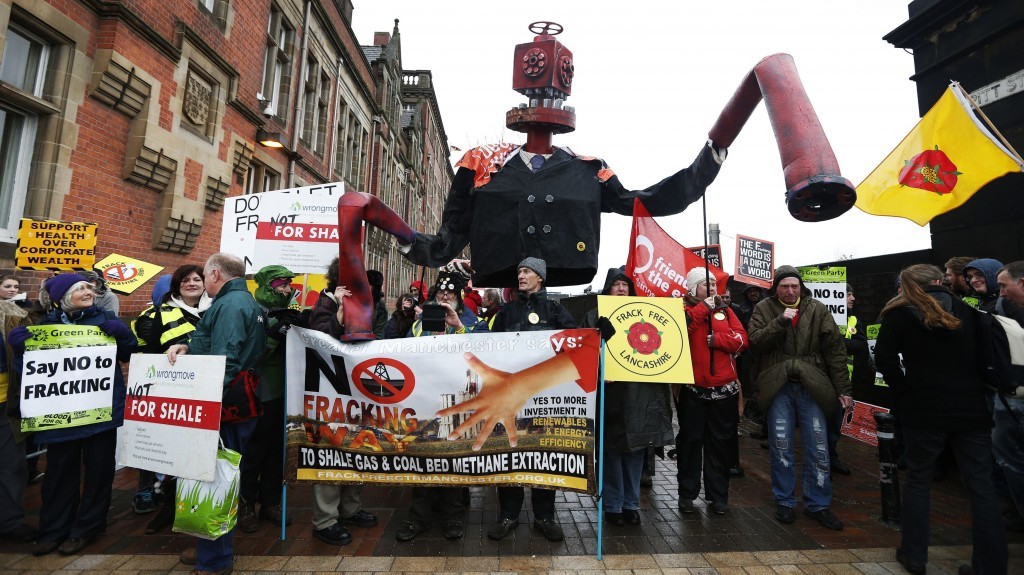
The rejection of fracking schemes in Lancashire comes as a significant blow to the Government’s bid to go “all out” for shale.
Environmental campaigners and local opponents of two schemes to drill and frack for shale gas between Blackpool and Preston were cheered last week when Lancashire county councillors turned down one scheme at Roseacre Wood over traffic concerns.
But today’s decision has seen the councillors rejecting the advice of their own planning officials, who had recommended the scheme at Preston New Road go ahead, prompting one green group to call it a “Waterloo” defeat for the shale industry.
Ministers have publicly backed the development of shale gas in the UK, in the hope that it could replicate the shale boom in the US, boost jobs and the economy, bring down energy prices and make the country less reliant on foreign imports.
But opponents have raised fears that the process of extracting gas by hydraulic fracturing – or fracking – causes earthquakes, can pollute water supplies, could lead to inappropriate development in the countryside and damage house prices.
Efforts to explore for oil and gas – even when fracking was not proposed – in Sussex have been met with protest camps and planning permission rejections, while Scotland has imposed a moratorium on planning consent for unconventional oil and gas extraction including fracking.
Lancashire, thought to hold major shale reserves and where fracking had been under way before being halted because of earthquakes, has been seen as the most likely bet for getting the industry going.
The rejection of the two Lancashire schemes could well face an appeal from shale company Cuadrilla, in which it could expect to have the tacit support of the Government.
A leaked letter which emerged earlier this year revealed Chancellor George Osborne had called on Cabinet colleagues to “make it a personal priority” to implement measures to help boost the shale industry, including contingency plans if the Lancashire applications were turned down.
But before any appeal can be processed the Government faces having to publish in full a heavily-redacted draft report into the impacts of fracking, after a ruling by the Information Commissioner.
Assessments of the impacts on house prices and local services were heavily redacted in the Shale Gas: Rural Economy Impacts report – raising suspicions the study confirms fears that it will damage communities around the well pads.
If it does emerge, and the Information Commissioner set a deadline for publication of late July, it may well undermine further the public support for fracking.
Despite moves such as promising revenues from shale production to local people, the latest surveying by the Department of Energy reveals just 24% of people support its development, down from 29% a year earlier.
The figures show 26% oppose shale gas development, up from 22% in March last year, while around half of those quizzed were neither for nor against it.
But with the Government’s support for shale, and many experts convinced of the need to do test drilling and fracking to find out just how great a resource it could be in this country, it is unlikely Lancashire County Council has had the last word.
The fracking battle will continue to rage, but environmental groups and local people who do not want to see it go ahead in their area are claiming today’s events as a significant victory for their side.
Asked for the Prime Minister’s response to the fracking decision, David Cameron’s official spokeswoman said: “We respect the planning process. The Government has been clear that we think shale has got huge potential and presents us with an opportunity to develop a new energy resource and create jobs.
“We will continue to look at how we can develop this industry in the UK.”
